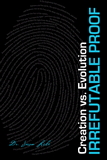Limiting Exposure
Science standards for Pennsylvania schools that have been three years in the works were finally approved by the state Board of Education on 13 July, 2001, but not before generating much controversy.
Science standards for Pennsylvania (USA) schools that have been three years in the works were finally approved by the state Board of Education (in a 13-2 vote) on 13 July, 2001, but not before generating much controversy.
A previous version of the standards did not mention “creationism,” but did require that students be able to “analyze evidence of fossil records, similarities in body structures, embryological studies and DNA studies that support or do not support the theory of evolution.”1 Of course, as with any challenge to a firmly entrenched belief system, the wording generated uproar, drawing 120 letters from mostly scientists. Critics believed it could “open the door to the teaching of creationism, the biblical account that the world and all living things were created in six days.”2 The wording was replaced with, “analyze data from fossil records, similarities in anatomy and physiology, embryological studies and DNA studies that are relevant to the theory of evolution.” 3
Commenting on the change, State Senator James Rhoades (chairman of the state Senate Committee on Education) said, “It’s almost as if we don’t want to let the light shine in. Are we limiting the ability for a mind to be exposed to as much as it can?”4
Larry Wittig, a Board of Education member, preferred the earlier draft “because it encouraged critical thinking.”5
We would agree with the sentiments of Senator Rhoades and Mr Wittig. Indeed, if “evolution” were the robust scientific theory many would have us believe it to be, then it should be able to stand up under critical analysis. However, the alarm exhibited by the scientists and other opponents to the previous version of the standards seems to indicate that “evolution” may not be all it’s cracked up to be. In fact, our Website features many articles about alleged “proofs” of evolution (e.g. hermaphrodites, new plant colours, “vestigial” organs, embryonic recapitulation, mutations, natural selection), showing that these “proofs” invariably turn out to be nothing of the kind.
“Evolution” should be taught (as an important belief/idea), but students” exposure to critiques of this view should not be limited.
Footnotes
- Jackson, Peter, Board revises science standards, strikes creationism language, The Daily Item, 13 July, 2001, p A3.
- Winnick, Pamela R. Board passes teaching standards, ‹https://web.archive.org/web/20010809124318/http://www.post-gazette.com/regionstate/20010713evolution0713p6.asp›, 17 July, 2001.
- Jackson, Peter, Board revises science standards, strikes creationism language, The Daily Item, 13 July, 2001, p A3.
- Winnick, Pamela R. State panel rejects teaching Creation,‹https://web.archive.org/web/20010722055155/http://www.post-gazette.com/regionstate/20010712evolution0712p4.asp›, 17 July, 2001.
- Winnick, Pamela R. State panel rejects teaching Creation,‹https://web.archive.org/web/20010722055155/http://www.post-gazette.com/regionstate/20010712evolution0712p4.asp›, 17 July, 2001.
Recommended Resources

Answers in Genesis is an apologetics ministry, dedicated to helping Christians defend their faith and proclaim the good news of Jesus Christ.
- Customer Service 800.778.3390
- Available Monday–Friday | 9 AM–5 PM ET
- © 2026 Answers in Genesis



